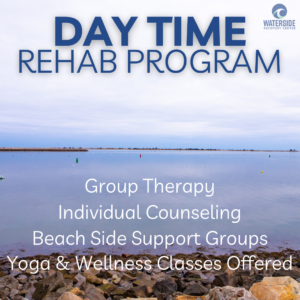
How to Help a Recovering Addict Stay Sober: Practical Tips and Strategies
Helping a recovering addict stay sober can be a challenging task. Addiction is a complex disease that affects not only the individual but also their loved ones. It takes time, patience, and understanding to support someone in their journey towards recovery. However, with the right tools and approach, it is possible to help a recovering addict stay sober.
One of the most important things to keep in mind when supporting a recovering addict is to avoid enabling their addiction. Enabling can take many forms, such as providing money, making excuses for their behavior, or ignoring the warning signs of a relapse. Instead, it is important to set clear boundaries and expectations, and to hold the individual accountable for their actions.
Another key aspect of supporting a recovering addict is to provide emotional support. Addiction can be a lonely and isolating experience, and having a strong support system can make all the difference. This can involve listening without judgment, offering encouragement and praise, and providing a safe and stable environment. By focusing on the individual’s emotional well-being, it is possible to help them stay motivated and committed to their recovery journey.
Understanding Addiction Recovery
Stages of Recovery
Addiction recovery is an ongoing process that involves several stages. The first stage is detoxification, which is the process of removing the harmful substances from the body. The second stage is rehabilitation, which involves therapy, counseling, and support groups. The third stage is maintenance, which involves ongoing support and monitoring to prevent relapse.
During the detoxification stage, the recovering addict may experience withdrawal symptoms, which can be uncomfortable and even dangerous. It is important for the individual to have medical supervision during this stage to ensure their safety.
In the rehabilitation stage, the recovering addict may participate in individual and group therapy, as well as attend support groups such as Alcoholics Anonymous or Narcotics Anonymous. Therapy can help the individual address the underlying causes of their addiction and develop coping mechanisms for dealing with triggers and cravings.
The maintenance stage is ongoing and involves continued support and monitoring to prevent relapse. This may include regular therapy sessions, participation in support groups, and accountability measures such as drug testing.
Common Challenges in Sobriety
Recovering addicts may face several common challenges during their sobriety journey. One of the biggest challenges is dealing with triggers and cravings. Triggers can be anything that reminds the individual of their addiction, such as a certain place or person. Cravings can be intense and difficult to resist.
Another challenge is rebuilding relationships that may have been damaged during the addiction. It can take time and effort to regain trust and repair relationships with loved ones.
Recovering addicts may also struggle with feelings of shame, guilt, and low self-esteem. It is important for the individual to work on self-care and self-compassion to overcome these negative emotions.
Overall, addiction recovery is a challenging but rewarding journey. With the right support and resources, recovering addicts can successfully navigate the stages of recovery and maintain sobriety.
Creating a Supportive Environment
The Role of Family and Friends
Family and friends play a crucial role in helping a recovering addict stay sober. They can provide emotional support, encouragement, and motivation to the individual. It is important for family and friends to understand the challenges that the individual may face during their recovery journey. They should be patient, non-judgmental, and willing to listen to the individual’s concerns.
Importance of a Sober Social Network
Having a sober social network is essential for a recovering addict. It is important for them to surround themselves with people who support their sobriety. They should avoid spending time with people who may trigger their addiction or encourage them to use drugs or alcohol. Joining support groups or attending sober events can help the individual build a strong sober social network.
Setting Boundaries
Setting boundaries is crucial in creating a supportive environment for a recovering addict. Family and friends should communicate their expectations clearly and establish boundaries that support the individual’s recovery. They should avoid enabling the individual’s addiction by not providing them with drugs or alcohol. It is important to hold the individual accountable for their actions and encourage them to take responsibility for their recovery.
By creating a supportive environment that includes a strong sober social network, clear boundaries, and emotional support from family and friends, a recovering addict can increase their chances of staying sober and achieving long-term recovery.
Lifestyle Changes for Sustained Sobriety
Healthy Habits and Routines
Developing healthy habits and routines can be crucial for maintaining sobriety. Regular exercise, a balanced diet, and sufficient sleep can help individuals in recovery feel better physically and mentally. It is important to establish a daily routine that includes time for self-care, such as meditation, yoga, or other relaxation techniques.
Stress Management Techniques
Stress is a common trigger for relapse, so learning effective stress management techniques can be essential for sustained sobriety. Techniques such as deep breathing, progressive muscle relaxation, and mindfulness meditation can help individuals manage stress and maintain a sense of calm. It is also important for recovering addicts to identify and avoid situations that may cause stress or trigger cravings.
Engaging in Sober Activities
Finding and participating in sober activities can be a positive way for recovering addicts to fill their time and stay connected with others. This can include joining a sports team, volunteering, or taking up a new hobby. It is important for individuals in recovery to surround themselves with supportive and sober peers, and to avoid situations where drugs or alcohol may be present.
By implementing these lifestyle changes, individuals in recovery can increase their chances of sustained sobriety. It is important to remember that recovery is a journey, and that each person’s path may be different. With dedication, support, and a commitment to self-care, individuals can achieve long-term success in their recovery journey.
Professional and Community Resources
Addiction Counseling and Therapy
Addiction counseling and therapy are essential components of a comprehensive recovery plan. Professional counseling can help addicts identify the underlying causes of their addiction and develop strategies to maintain sobriety. There are many types of addiction counseling and therapy, including individual therapy, group therapy, and family therapy.
Individual therapy is a one-on-one session between the addict and a licensed therapist. This type of therapy allows the addict to explore their emotions, thoughts, and behaviors in a safe and confidential environment. Group therapy involves a group of addicts who meet regularly to discuss their experiences and support each other. Family therapy involves the addict’s family members and aims to improve communication and relationships within the family.
Support Groups and Meetings
Support groups and meetings are an essential part of recovery. They provide a safe and supportive environment where addicts can share their experiences, struggles, and successes. Support groups and meetings can be found in many communities and are often free of charge.
One of the most well-known support groups is Alcoholics Anonymous (AA), which provides a 12-step program for recovering alcoholics. Narcotics Anonymous (NA) is a similar program for recovering drug addicts. SMART Recovery is another support group that focuses on self-empowerment and self-reliance.
Relapse Prevention Programs
Relapse prevention programs are designed to help recovering addicts maintain their sobriety. These programs provide addicts with the tools and strategies they need to identify and avoid triggers that could lead to relapse.
One popular relapse prevention program is the Matrix Model, which combines individual and group therapy, drug testing, and education. Another program is the Community Reinforcement Approach (CRA), which focuses on improving the addict’s relationships, employment, and social activities.
In conclusion, there are many professional and community resources available to help recovering addicts stay sober. Addiction counseling and therapy, support groups and meetings, and relapse prevention programs are just a few examples. By utilizing these resources, addicts can increase their chances of achieving long-term sobriety.
At Waterside Recovery Centers we pride ourselves on providing the top addiction treatment in Massachusetts. With a range of evidence-based, client-focused and individualized treatment offerings, we are able to provide the ideal support for those seeking recovery from substance addiction. Please feel free to reach out to our help line at anytime.
(866)671-8620





